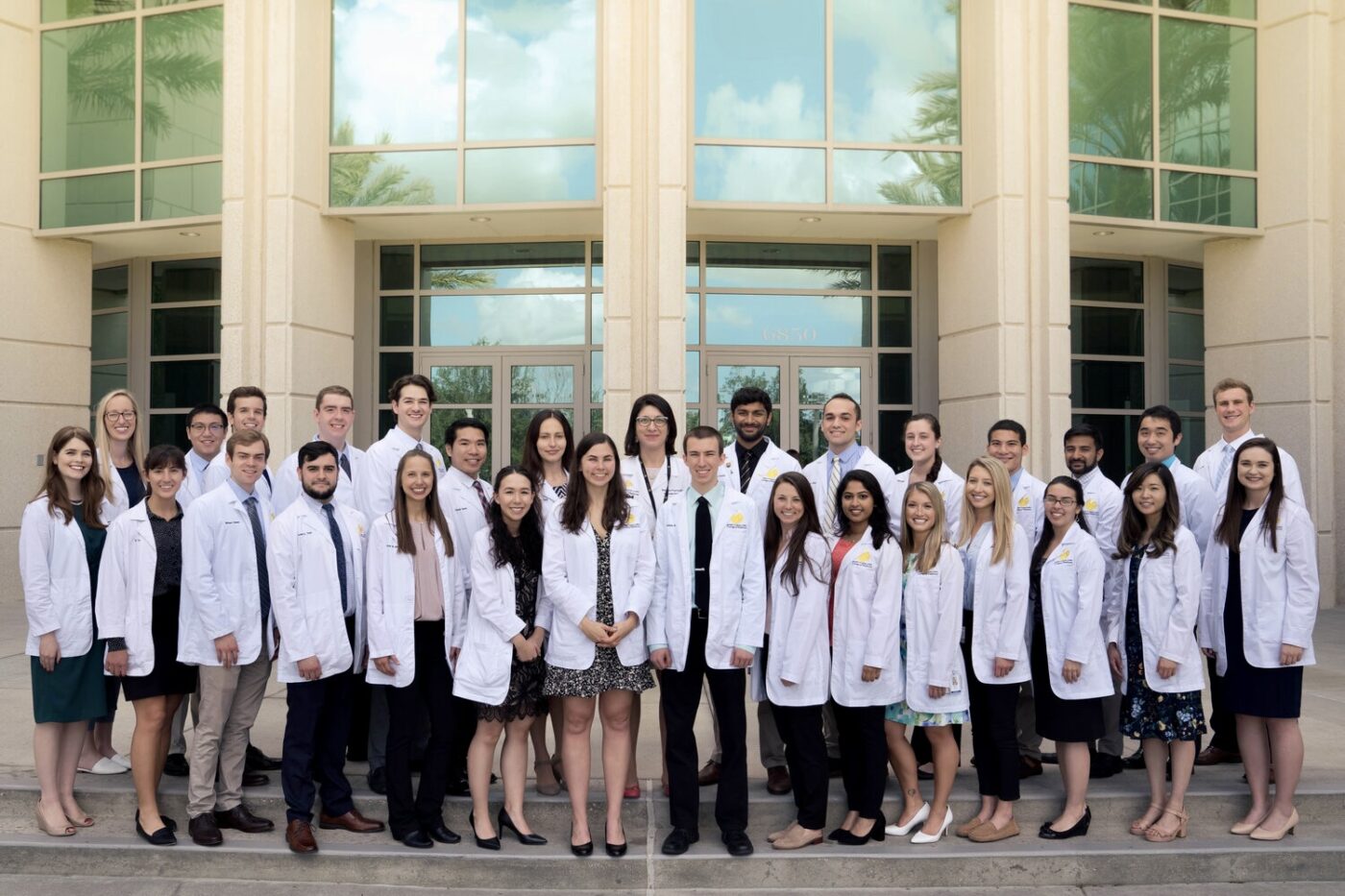Every year, more medical graduates elect to practice medicine in urban areas than rural areas. This phenomenon is unsurprising, given the financial incentives to practice medicine in metropolitan areas. Quite simply, there is not much motivation for medical practitioners to practice rural medicine. Unfortunately, the downside is that rural areas have been somewhat left behind in developing their healthcare systems.
Undoubtedly, more needs to be done to improve rural medicine’s delivery and practice. If you are among the thousands of medical graduates our colleges churn out each year, you might want to rethink your decision. Practicing rural medicine is becoming increasingly viable for many medical graduates. As a nation, medical care has come a long way and has advanced to unforeseen heights. However, our healthcare has seemingly been unable to tackle this problem of rural medicine effectively. Pursuing rural medicine would undoubtedly go a long way in alleviating this problem.
How the Government Has Addressed The Problem
Government agencies have long attempted to reduce and narrow the disparity between urban health care systems and rural medicine. To this end, they have created the National Rural Health Association and the Federal Office of Rural Health Policy, all tasked with assessing and proposing solutions. This organization has found that a multitude of factors are to blame for this situation. Chief among them has been the sheer lack of doctors practicing medicine in rural communities and the lowered earning potential of rural families.
The geographical distance between the people and primary healthcare givers is also troubling and is another critical factor contributing to this problematic situation. The unfortunate result has been a noticeable preventable disease among rural households. Statistics show that 20% of the population lives in rural areas. Therefore, the shortfall in rural medicine is quite significant and must be addressed appropriately and in a timely fashion. The health of more than 50 million Americans is at stake.
Government agencies have undoubtedly attempted to tackle this problem with limited success. The U.S. Department of Health has designated certain areas as Health Professional Shortage Areas. Tellingly, most of these areas are rural, making rural medicine one of the nation’s top concerns. The data and statistics collected have created an awareness of rural medicine’s challenges
New Momentum in Incentives and Pipeline Programs
Closing the care gap for the fifty‑plus million Americans who live outside metropolitan areas is no longer a theoretical policy goal. During the past five years, federal and state agencies, private foundations, and medical schools have widened a collection of practical incentives that make rural practice attractive and financially secure.
The National Health Service Corps (NHSC) has expanded loan‑repayment funds so that primary‑care physicians, nurse practitioners, and physician assistants who choose federally designated shortage areas may now receive up to two hundred thousand dollars in tax‑free loan relief over a ten‑year service window. Several states match those dollars with their own forgiveness plans, meaning a graduate with substantial debt can eliminate most or even all of it within the first decade of practice. In parallel, the Conrad State Thirty J‑1 visa waiver program continues to draw talented international medical graduates, allowing each state to sponsor physicians for permanent residence when they commit to rural service.
Money is only part of the equation. Rural Training Track (RTT) residencies, once limited to a handful of programs, now operate in more than half the states. These tracks immerse residents in community hospitals and critical‑access facilities from the start of postgraduate year one, rather than rotating them in for a few weeks near graduation. Outcomes data show that graduates of RTT programs are three times more likely to remain in rural settings than peers from traditional residencies. Couples‑matching options and spousal job‑placement services, offered by many RTT sites, answer one of the historic deterrents to rural relocation.
For medical students still in the preclinical phase, funded summer clerkships provide eight to twelve weeks of supervised experience alongside family physicians, emergency clinicians, and public health nurses in frontier counties. Students create quality‑improvement projects, such as streamlining prenatal visits or organizing vaccination drives, that leave a tangible benefit after they return to campus. Surveys indicate that early, hands‑on exposure is the strongest predictor that an urban‑born student will eventually choose a rural career.
High‑school and community‑college pipeline initiatives have also matured. The Rural Scholars Program in North Carolina and similar efforts in Iowa, Oregon, and Georgia guarantee conditional acceptance to state medical schools for students who maintain GPA and service requirements. By identifying talent locally and mentoring it continuously, these programs address the root cause of physician maldistribution: the under‑representation of rural youth in medical education.
Finally, professional support has improved markedly. Broadband expansion grants have increased real‑time access to subspecialty consultation, letting rural physicians share electronic health records, imaging, and even live procedural video with tertiary centers. Regional networks host quarterly case conferences and virtual tumor boards, so rural doctors no longer feel professionally isolated. Mentoring circles pair early‑career clinicians with seasoned rural physicians who provide guidance on everything from credentialing to work‑life balance.
These financial, educational, and technological developments are shifting the calculus for new graduates. Practicing in a small town now offers concrete debt relief, broad clinical autonomy, and an authentic sense of community—advantages that match or surpass those found in large urban systems. By understanding and using these opportunities, today’s medical graduates can transform both their own futures and the health of the rural populations who need them most.
As a prospective physician, you, too, can play a critical role in ensuring a level playing field in our country’s healthcare system. Several colleges have even started programs to counter the problem. This is good news as it means that America’s health system stakeholders are alive to the unfortunate reality.
Our Role as Physicians
In keeping with our oath and calling to serve all and sundry, many physicians have taken the call to action with the seriousness it deserves. Many primary caregivers have shifted base to rural areas, where their services are much more needed. Most physicians did not get into medical school solely for the financial reward. Instead, they endured long hours of excruciating study because of an innate desire to do some actual good in the world and alleviate others’ suffering. Regardless, the financial incentive is usually a deciding factor for most graduates who choose to practice in metropolitan areas.
Contrary to common belief, physicians in rural areas also earn a decent annual salary. Incredibly, they make more money than their urban counterparts. The perception that urban doctors earn more is nothing more than a myth. In part, the higher salary can be safely attributed to the lowered cost of living in rural areas. This means that practitioners of rural medicine live more affluent lives. That said, if you are in college pursuing one of the best pre med majors out there, you have to alleviate disease and ill health where your services are most needed. As for upcoming physicians, this is our primary focus.
The Response from Medical Colleges Countrywide
In response to the growing need for doctors in rural areas, the University Of Kansas School Of Medicine-Salina was set up. It opened in 2011 to great fanfare as it was strategically located in a rural setting in an attempt to alleviate the shortage of physicians there. However, of the eight graduates, only three chose to take their services where they were most needed.
The rest could not resist the allure of the big cities. Perhaps this is a perfect illustration of the situation surrounding rural medicine. These areas are mostly isolated and might not be the best choice for spouses. Secondly, big cities have the advantage of having several professionals and institutions to confer and share resources with. Rural areas mostly lack such networks and resources.
The situation is getting dire; more doctors are retiring only to find that younger counterparts are not interested in taking up their former positions.
The University of Kansas School of Medicine Salina is just one of the forty campuses in the country that have taken the call to action seriously enough. It may be a humble start and a small step, but it is a start. By placing the campus right in the center of rural Kansas, the university hoped to imbue in their medical students a sense of rural belonging. Doing so will let me adjust and adapt to the rigors of daily rural life.
However, if used appropriately, telemedicine could lift your worries of having to practice medicine alone in a small town. By harnessing this valuable piece of technology, you can consult freely via video call with your colleagues and other professionals. In the past, and in a bid to increase the number of rural physicians, the federal government has granted 20 million dollars to be explicitly used to set up 27 rural residency programs for medical graduates.
The Problems Facing Rural Healthcare
We have already explored the myriad of problems that rural folk encounter, but did you know that only around ten percent of doctors practice medicine in rural settings? This is deeply troubling, especially when compounded by the fact that rural people are more likely to die due to specific ailments like heart disease, accidents, injury, and lung disease. In contrast, their urban counterparts are more likely to seek earlier intervention for these diseases, forestalling them. Additionally, rural people are usually more likely to suffer from cancer at advanced stages.
The picture painted is dire, and it is up to us to change this. Predicting that the imbalance is likely to persist or even worsen in the coming years is more troubling. Most medical students hail from urban centers, and as a result, they are more accustomed to the frantic pace of life in the cities. In contrast, rural medical students make up less than five percent of the student body.
To address these concerns, many medical schools seek out students who are more likely to practice rural medicine. They then equip them with the knowledge and skills to succeed in a rural set-up. Studies have shown that students who grew up in rural communities are more likely to return there to practice medicine, and in part, this argument has been behind the rise in rural outreach programs.
How Medical Campuses are Changing the Face of Rural Medicine
We have even witnessed partnerships and collaborations among universities intent on addressing this disparity. For example, the Oregon Health & Science University and the University of California, Davis, School of Medicine have created a new and ambitious venture with the sole objective of encouraging more physicians to take up rural medicine.
Some medical field stakeholders argue that rural rotations should be made compulsory and should be part of every medical student’s curriculum. They argue this move would encourage others who would ordinarily have never thought of pursuing a career in rural medicine. Another essential aspect of rural rotations for most people has been the gratifying experience. By interacting daily with the community, one gets to know them better on a personal level. In contrast, doctors and patients can’t build the same level of trust and confidence in an urban setting. A single physician can change the healthcare system of an entire rural community.
As a result of physicians’ historic shortage in rural areas, the workload may be a bit intensive at first. As a rural medicine practitioner, you must contend with the considerable workload as you are often the only medical resource in the area. Physicians need to manage their work effectively to avoid burnout. Having a physician assistant to help is also crucial to managing your workload.
This problem has been so prevalent and persistent that the government has had no choice but to pass legislation on the issue. In 2010, the Patient Protection and Affordable Care Act was passed. It attempted to even out the imbalance that is witnessed in rural medicine. The imbalance, however, can also present opportunities for many medical graduates. If you are adventurous and love the allure of far-flung places, then such a posting should be ideal for you. There are certainly some benefits to practicing medicine in a rural setting.
The Benefits of Practicing Rural Medicine
You get to practice medicine and utilize your talents and skills where they are most needed. In the altruistic spirit of the medical profession, this move is both gratifying and rewarding. The truth is that close to sixty million Americans cannot access healthcare services easily. They have to drive for tens of miles just to see a doctor.
The implication is that emergencies and potentially life-threatening illnesses cannot be addressed in a timely manner. Rural communities especially suffer from a lack of specialized health care. Certain issues, such as mental health and reproductive health services, are rarely, if ever, addressed in such communities. Applying your skills and knowledge in a rural setting will significantly impact entire communities.
Another advantage of practicing in a rural setting is reduced fatigue and burnout. Away from the city’s hustle and bustle, rural settings have the natural, fresh air and wide-open spaces that are favorites for outdoor enthusiasts. Rural communities provide opportunities for outdoor activities that are lacking in urban areas. Although the workload is constant, the pace of life is slow and less frantic than in urban areas.
As medical graduates, we are more likely to advance and develop our skills and techniques in a rural setting. Since you are often the only physician for miles, you experience various medical cases. This will undoubtedly increase confidence in your abilities, making you more proficient.
Working in a rural setting provides an immediate sense of community. Since everybody knows everyone else, you get to immerse yourself entirely in the community. This can be gratifying, as physicians in rural areas often provide their services for generations and extended families. Doctors are quite respected in rural settings, and it is easy to see why. Patients are quite loyal to their doctors in such areas and will provide you with a constant stream of work for generations to come.
Rural Medicine: The Reality
Rural doctors are ordinarily expected to cover a broad scope of work. Another defining factor of rural medicine is the extensive skills needed to pursue it successfully. Rural physicians must be ready to deal with any case as it arises. In contrast, in urban areas, doctors are more likely to specialize and handle cases that fall within their areas of specialization. A rural doctor is often on call for all sorts of issues, from delivering babies to setting broken bones to handling farm injuries. He is more of a generalist than a specialist, as he is often the only medical personnel for miles around.
Rural doctors are also expected to be more flexible with their time and resources. Since you often operate under limited resources, you must be creative enough to make do with what is available. In addition to your medical training, learning the customs and norms peculiar to the community is essential. This will go a long way in easing relations between you and your patients.





